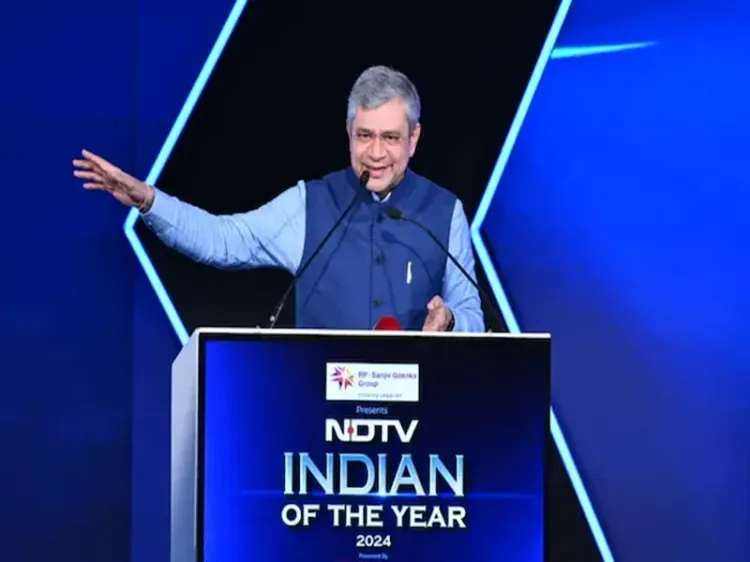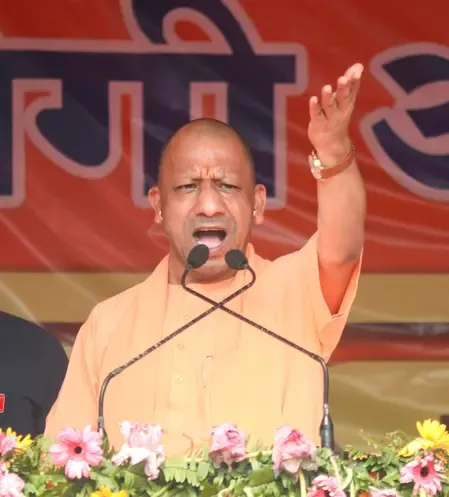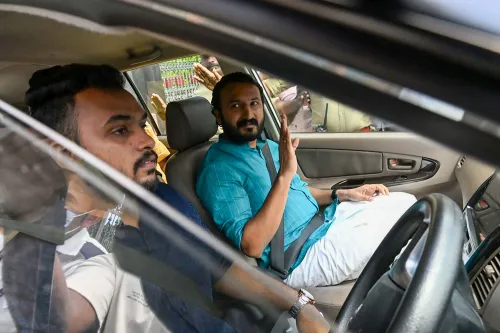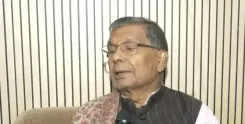Ashwini Vaishnaw Highlights PM Modi's Four-Pillar Approach Fueling India's Economic Progress

New Delhi, Dec 6 (NationPress) In light of global challenges and geopolitical strife, the world views India as a beacon of hope, and a significant factor contributing to this perception is the nation's economic narrative, which is propelled by Prime Minister Narendra Modi's four-pillar strategy, said Union Minister Ashwini Vaishnaw on Friday.
During his keynote address at the NDTV Indian of The Year event, Ashwini Vaishnaw, who oversees the Railways, Information and Broadcasting, and Electronics and Information Technology sectors, remarked: "It is not merely coincidental that we are witnessing a sustained growth rate of 6-8 percent."
"The thoughtful approach of PM Modi, coupled with a clearly defined plan based on four pillars, is what underpins India's steady growth and moderate inflation," Union Minister Vaishnaw stated.
Expounding on the first pillar of investments, the Minister highlighted that India’s capital expenditure has surged from approximately Rs 3.5 lakh crore a decade ago to Rs 11 lakh crore in the current fiscal year, which is remarkable and unprecedented in Independent India.
"This expansion is fostering productivity enhancements and job creation across nearly all sectors. Airports have doubled in number, and 31,000 km of railway lines have been constructed, surpassing the total railway network of Germany. In just the past year, 5,300 km of railway lines have been laid, exceeding Switzerland’s entire network. Furthermore, the number of AIIMS and IITs has also doubled over the last decade," Ashwini Vaishnaw noted.
Discussing the democratization of e-payments and their adoption even by street vendors, the Union Minister shared that he was approached by an individual from "one of the wealthiest nations" during an international forum, inquiring when India plans to assist other nations that have been left behind, given India's substantial progress.
"The current sentiment is that India is a leader in various technological fields, contrasting with the past when it was primarily a follower," Ashwini Vaishnaw stated.
On the subjects of innovation and manufacturing, the Union Minister noted that India boasts 1.2 lakh startups, up from merely 300-400 a decade ago, and has over 100 unicorns, positioning the country among the top three startup ecosystems globally.
The 'Make In India' initiative, he explained, has influenced everything from the engineering goods sector to the defense industry.
The third pillar of inclusive growth, according to Vaishnaw, is crucial to addressing the economic disparities that arose from policies implemented over the past 50-60 years.
He emphasized that PM Modi has integrated inclusive growth into every policy framework, benefitting all, particularly those at the base of the economic pyramid.
"Around 54 crore bank accounts have been established, with half of them owned by women. This is significant, as it surpasses the entire population of Europe, which stands at 45 crore. Bringing a population greater than that of Europe into the banking system was an extraordinary achievement, made possible," the Minister highlighted.
"Nearly 4 crore individuals have received new homes, and the cooking habits of 11 crore people have shifted to gas -- the entire population of Japan is 11 crore, while Germany's population is 8 crore. The Prime Minister’s inclusive policies have positively impacted more individuals than the populations of many countries," he stated.
Vaishnaw noted that simplification has been achieved through the removal of colonial laws that are no longer relevant.
"India’s telecom sector was previously regulated under an 1885 law - the Telegraph Act. As many as 1,500 outdated laws have been eliminated from the legal framework. New laws have been enacted, and measures have been implemented to reduce compliance burdens—for instance, obtaining permission for a telecom tower previously took an average of 217 days; this has been reduced to seven days following a reform introduced by PM Modi in 2021. Even among these, 89 percent of permissions are granted instantly upon pressing the 'Enter' key," he explained.
Ashwini Vaishnaw affirmed that the scope and scale of initiatives have broadened, with PM Modi focusing on the poor and middle class.
"As a result of these efforts, we can assert with considerable confidence that India will maintain a growth trajectory of 6-8 percent real growth, 10-14 percent nominal growth, and very moderate inflation over the next five years. This is why, even in times of global anti-incumbency, a dynamic and vocal democracy like India has re-elected a government and Prime Minister for three consecutive terms for the first time. The populace has witnessed tangible changes and transformations in their lives," he concluded.










